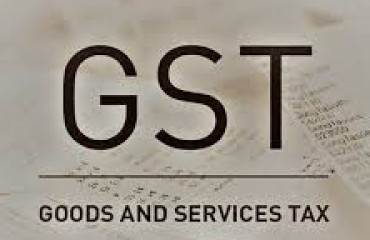
Shipping gold, precious stones above ₹2L may need e-way bills
Shipping gold, precious stones above ₹2L may need e-way bills
 Premium
PremiumNEW DELHI : The GST Council is likely to finalize rules next week for transporting gold and precious stones worth ₹2 lakh or more by merchants so that states can monitor their movement and prevent leakages in tax collection, a person familiar with the development said.
According to the proposed rules, states will be at liberty to mandate GST-registered entities to report the movement of gold and precious stones worth ₹2 lakh or any other threshold above this level, within the state, by way of generating e-way bills or electronic permits before starting transport. At its meeting on Tuesday, the federal indirect tax body will consider the rule changes in central and state GST laws in this regard, said the person cited above, who spoke on condition of anonymity. The proposal to let states introduce such a requirement was made by a ministerial committee with Kerala finance minister K.N. Balagopal as the convenor.
The final draft rules to be considered by the Council are expected to say that where gold above the specified threshold is sold to final consumers without GST registration, the onus of raising the electronic permit will be on the seller.
The move to oversee the movement of gold and precious stones comes in the context of off-the-books transactions and tax evasion around these items. Already, the central government has put a maximum limit of ₹2 lakh on cash acceptance from a person in a single day, with some exceptions such as bank deposits etc., as part of efforts to formalize the economy, reduce the use of cash, and create a financial trail. Introducing the e-way bill requirement for gold is also expected to help in creating an audit trail, given that the GST system uses e-way bill data to pre-fill a merchant's sales return.
"Introducing e-way bills for intra-state gold and precious stone transportation could help state authorities keep a watch over the movement of these items, and where any shipment of these items above the prescribed threshold is detected without e-way bills, they would be able to take action.
However, it remains to be seen how effective this proposal may be on the ground," explained Abhishek Jain, partner and National Head, Indirect Tax at KPMG in India.
At Tuesday's meeting, the Council is also expected to consider a host of other legislative changes, especially those meant to check tax revenue leakage, especially in evasion-prone sectors like pan masala, where margins are also high. Pan masala producers are likely to be asked to register their machines and capacity in the GST portal to keep a close watch over their output. Eventually, they may be required to give quick response (QR) codes on packages giving details of the factory and other details.
The Council is also expected to consider clarifications to be issued, including on the tax collected at source (TCS) liability on e-commerce transactions where multiple e-commerce operators are involved in a single transaction. This clarification is significant given that the Open Network for Digital Commerce (ONDC), an initiative by the government meant to democratize digital commerce, brings together diverse entities and platforms in an interoperable way.The 50th GST Council meeting on Tuesday will aim to streamline the GST framework and build on the efficiency it has achieved in recent months, leading to a record ₹1.87 trillion in monthly tax receipts in April. The Council is also likely also reconstitute certain ministerial groups, especially the ones looking into the need for tax rate increases.
